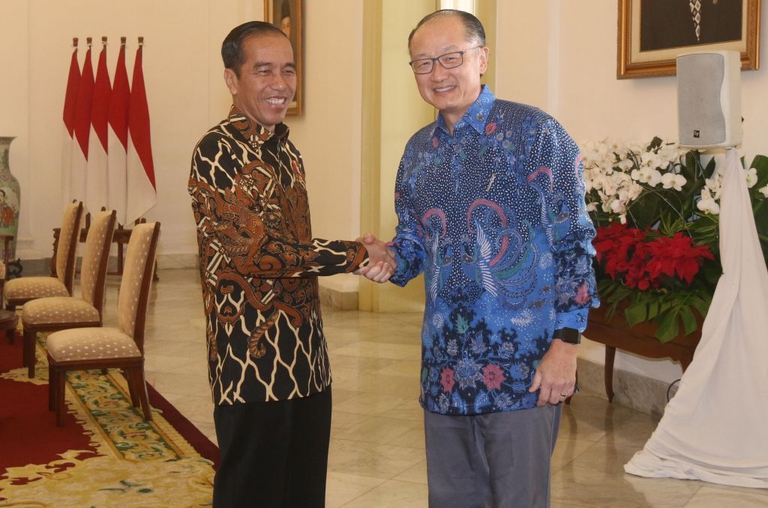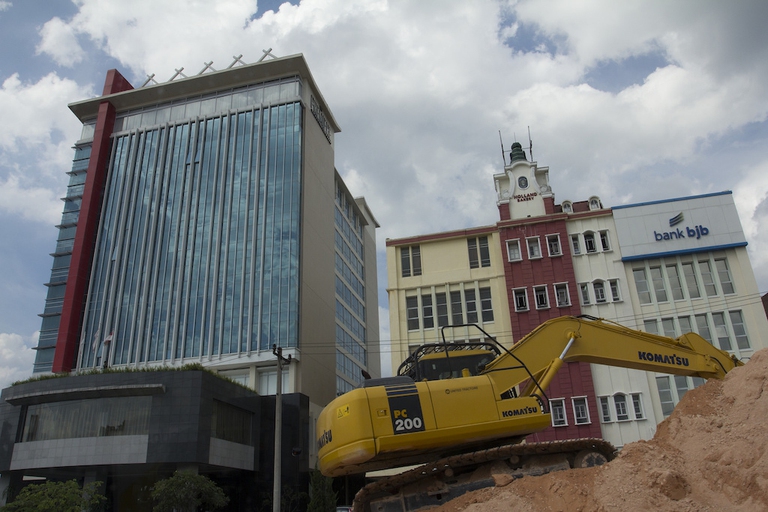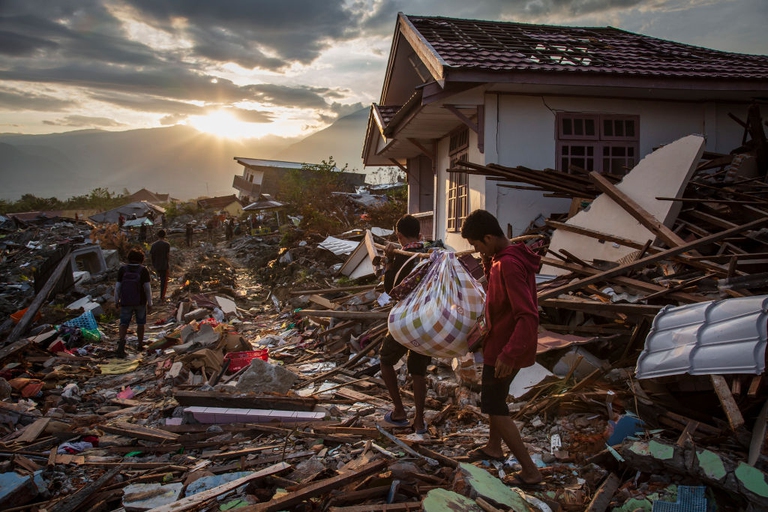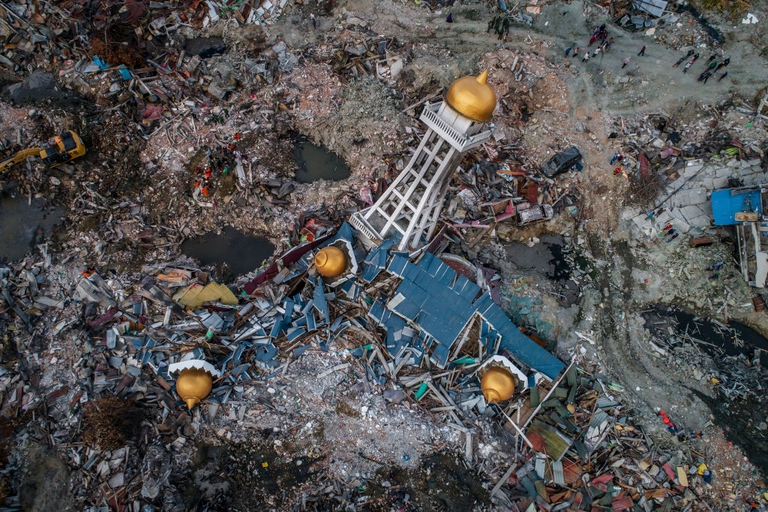
As per tradition after 12 years India held Mahakumbh, the world’s largest spiritual congregation that has been attracting pilgrims from across the globe.
The World Bank’s pro-business agenda has led to lax and risky construction rules in Indonesia, a fact brought into focus by the devastating earthquake and tsunami that hit Palu in September as Elizabeth Fraser, Senior Policy Analyst at the Oakland Institute, highlights.
On the 28th of September, devastation ripped through Palu on the island of Sulawesi in Indonesia as both a massive 7.5 magnitude earthquake and subsequent tsunami struck the coastal city. The damage caused by these twin disasters – which at the time of writing has heartbreakingly claimed more than 2,000 lives – is horrifying. In reading about the tragedy, one detail in particular stands out: reports of thousands of buildings including hotels, shopping malls, and housing estates collapsing and trapping those inside. The thought of being trapped in a collapsed building is absolutely terrifying, but this tragedy also unveils the dire impact of the World Bank’s pro-business agenda.
For years, the Bank has pushed Indonesia to improve its standing in the former’s annual Doing Business reports, which rank countries on their “ease of doing business” and reward governments for enacting pro-corporate policy changes. Over the past decade, Indonesia has succumbed to this pressure, passing many such policy reforms to leapfrog ahead substantially in the rankings.
Several of the reforms adopted by the Indonesian government under the World Bank’s guidance have to do with the “ease” of obtaining building and construction permits. In 2008, the World Bank praised Indonesia for introducing a “simplified process” that allowed temporary building permits to be issued, making it possible for construction to begin before full permits were approved, and reducing the time required to get a permit from 49 days to just 21.
In 2016, the government further simplified the building permit process so that approvals in certain parts of the country could be obtained in just two days. Then, this past summer, yet another reform was enacted with the introduction of an Online Single Submission licensing system, which makes it possible to obtain location, environmental and building permits just one hour after submitting the required documentation online. As a result of these and other pro-business reforms, Indonesia climbed 51 spots in the rankings between 2008 and 2018, including a 34-rank leap between 2016 and 2018 alone.
There’s little doubt that these reforms make it easier to start and operate a business in Indonesia. But this recent disaster begs the question, at what cost? What and who do we sacrifice when we put corporations first? When we speed up processes to attract private investors? When we cut corners to align under pressure from the World Bank?
For years, the global Our Land Our Business campaign has exposed the devastating impacts of the rush by developing countries to deregulate to please the Bank. As part of this campaign, a new report, Indonesia: The World Bank’s Failed East Asian Miracle, released on the 2nd of October by the Oakland Institute, details the specific and harrowing impacts of World Bank-backed reforms in Indonesia. Beyond the recent devastation in Palu, this includes the displacement and criminalisation of smallholder farmers and indigenous defenders to make way for mega-agricultural projects, as well as massive deforestation, widespread loss of indigenous land and rapidly increasing greenhouse gas emissions associated with the country’s expanding palm oil sector.
For far too long the Bank has wielded its influence and power to push its pro-corporate agenda on governments around the world, wilfully ignoring the waves of destruction it has created. The time for this to end is now. As it happens, just last week World Bank officials gathered in Indonesia for their annual meetings.
Against this horrific and sobering backdrop, the Bank and its officials must wake up to the devastation they’ve unleashed. They must be held accountable for the massive cost – in lives, livelihoods, the environment, and more – of their neoliberal agenda. And they must end the Doing Business rankings once and for all. The world needs development policies that serve people, not policies that blindly focus on economic growth at all costs.
Siamo anche su WhatsApp. Segui il canale ufficiale LifeGate per restare aggiornata, aggiornato sulle ultime notizie e sulle nostre attività.
![]()
Quest'opera è distribuita con Licenza Creative Commons Attribuzione - Non commerciale - Non opere derivate 4.0 Internazionale.
As per tradition after 12 years India held Mahakumbh, the world’s largest spiritual congregation that has been attracting pilgrims from across the globe.
Workers in tea gardens of West Bengal, India, that produces Ctc tea for domestic consumption complain that they have been devoid of basic facilities while political parties make hollow promises during every elections which are never fulfilled.
India is in the middle of the elections, but sadly none of the politicians have uttered a word on man-animal conflict that has been devouring several lives every year.
Manipur, a state in north-east India, is still reeling under the tremors of violence that broke out last year devouring lives and paralyzing the economy.
The government of Tanzania is currently planning to evict more than 80.000 indigenous Maasai people from their ancenstral land
A new UNU-INWEH report on the global bottled water industry reveals the massive scale of this market and the lack of strict quality controls.
Isatou Ceesay founded a social enterprise that is helping to fight plastic pollution and empowering women and young people to gain economic independence.
In 2020, Mihela Hladin made a radical decision that many, in recent times, have probably considered. This is her story, with photos by Matt Audiffret.
The Brazilian government has started evicting illegal gold miners, responsible for the health emergency that has hit the Yanomami people.











